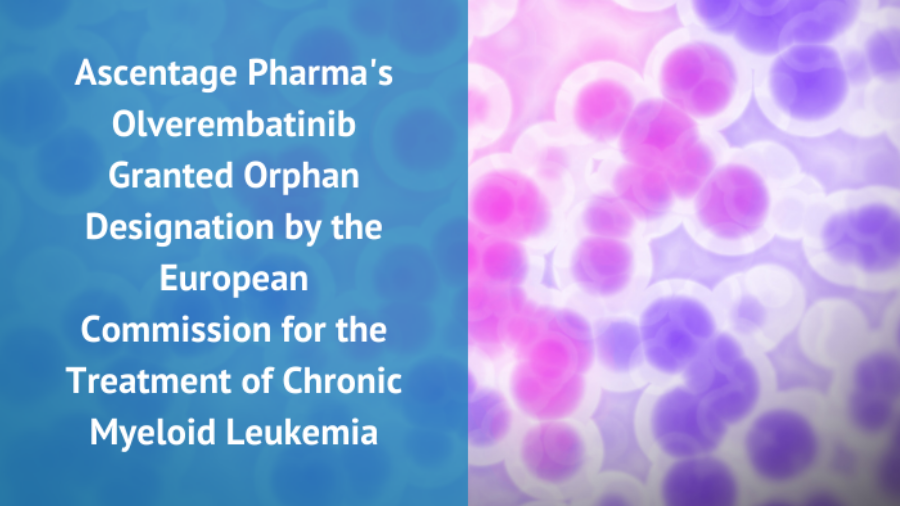Ascentage Pharma (6855.HK), a global biopharmaceutical company engaged in developing novel therapies for cancers, chronic hepatitis B (CHB), and age-related diseases, today announced that the European Commission (EC) has granted the company’s novel drug candidate, olverembatinib (HQP1351), an Orphan Designation for the treatment of chronic myeloid leukemia (CML). This is the first Orphan Designation granted to Ascentage Pharma’s drug candidates in the European Union (EU), and the second granted to olverembatinib globally, following the designation by the US Food and Drug Administration (FDA).
The term “orphan medicines” refers to pharmaceutical products developed for the prevention, diagnosis, and treatment of rare diseases or conditions. In the EU, Orphan Designations are granted by the EC based on the opinions of the Committee for Orphan Medicinal Products (COMP) of the European Medicines Agency (EMA), and only those therapies treating life-threatening or chronically debilitating diseases or conditions affecting less than 5 in 10,000 people in the EU and represent huge unmet medical needs are granted the Orphan Designation. Moreover, designated drugs must be able to demonstrate through non-clinical and clinical data that it can potentially provide greater therapeutic benefit than existing therapies. The EMA offers a range of incentives to encourage the development of designated orphan medicines. This Orphan Designation for olverembatinib qualifies the drug candidate for great regulatory supports in the subsequent clinical development and commercialization in the European Union, including protocol assistance, fee reductions, and most importantly, 10 years of market exclusivity upon approval.
CML is a rare hematologic malignancy that has an annual incidence of 2.43 per 10,000[1] in the 27 member nations of the EU. BCR-ABL tyrosine kinase inhibitors (TKIs) have significantly improved the clinical management of CML. However, despite clinical benefits offered by the first- and second-generation TKIs, many patients develop drug resistance. Such acquired resistance to TKIs is a major challenge in the treatment of CML. BCR-ABL kinase mutations represent a key mechanism of acquired drug resistance; T315I, which is the most- common drug-resistant mutation, occurs in about 25% of patients with drug-resistant CML. Patients with T315I-mutant CML are resistant to both first- and second-generation BCR-ABL inhibitors, hence presenting an urgent and high unmet medical need for third-generation BCR-ABL inhibitors to more effectively target the T315I mutation.
To Read the Complete Article at Pharmacy Times Click Here
Disclaimer: BioPharma Global is not responsible for, and expressly disclaims all liability for, damages of any kind arising out of use, reference to, or reliance on any information contained within the article. Content available through the site may contain links and information to other websites. Links from BioPharma Global to third-party sites do not constitute an endorsement by BioPharma Global of the mentioned parties.
BioPharma Global is a mission-driven corporation, operating like a not-for-profit, dedicated to using our FDA and EMA regulatory expertise and knowledge of various therapeutic areas to help drug developers advance treatments for the disease communities with a high unmet medical need. If you are a drug developer seeking regulatory support for Orphan Drug designation, Fast Track designation, Breakthrough Therapy designation, other FDA/EMA expedited programs, type A, B (pre-IND, EOPs), or C meeting assistance, or IND filings, the BioPharma Global team can help. Contact us today to arrange a 30-minute introductory call.
Stock image by Giovanni_Cancemi from Depositphotos

